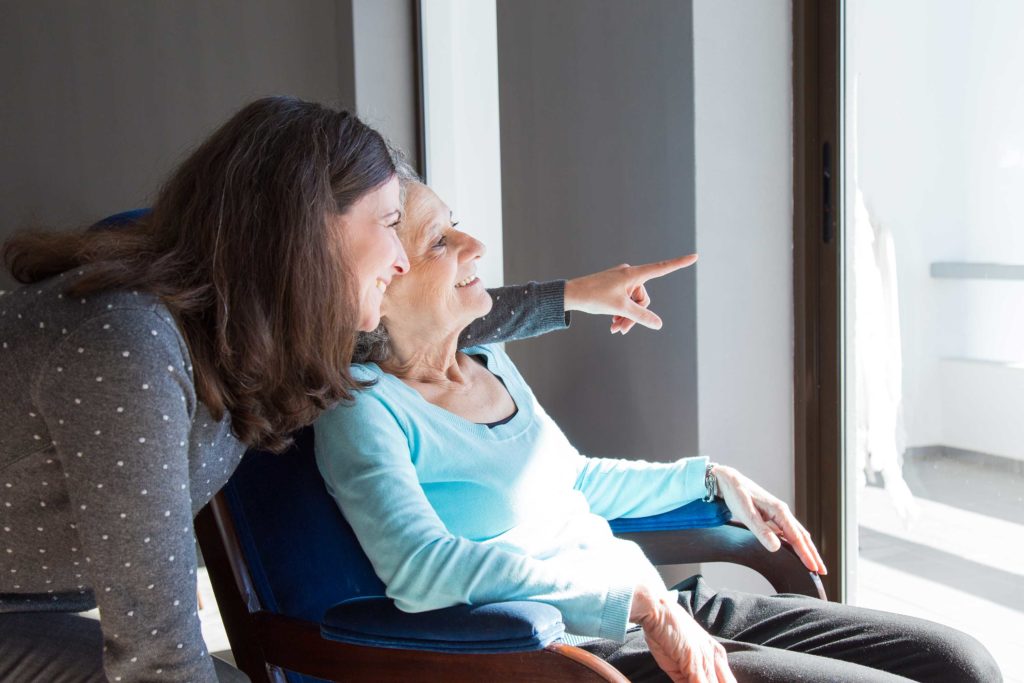September is World Alzheimer’s Month
Every September is World Alzheimer’s Month where people from around the world come together to raise awareness and challenge the stigma that remains. This year’s World Alzheimer’s Month campaign ‘Time to Act on Dementia, Time to Act on Alzheimers’ seeks to redress discrimination, while highlighting the positive steps being undertaken by organisations globally to develop a more dementia friendly society.
How to Support World Alzheimer’s Month
Donate: Help to find a cure by making a donation today.
Research: Take part in research by joining Dementia Research.
Volunteer: There are many inventive ways to volunteer whether by running marathons or holding awareness talks within your community.

Numerous tactics and advice are accessible to assist families and caregivers in offering the highest quality of care for loved ones grappling with this advancing condition. Care 24-7 can provide you with information about caring for your loved one with dementia with the below tips and strategies.
Did You know?
Almost 80% of the general public are concerned about developing dementia at some point according to The World Alzheimer’s Report.

Understand the Condition
By acquiring extensive knowledge about the condition, caregivers are empowered to make informed choices for their loved ones. Read resources or watch videos to learn more. Organisations such as Alzheimer’s Society and Alzheimer’s Research UK can be invaluable sources of information and guidance.
It is helpful for families to familiarise themselves with the four distinct varieties of this condition and their associated symptoms. Grasping the fundamentals, including its onset and progression, can aid in understanding that mood and behavior changes are common for loved ones affected by it. The more you know about it, the more support that can be provided.
Simplify the Environment
Simplifying the environment can be a challenge for many caregivers but it is very beneficial as it prevents confusion and unwanted accidents. As families want a comfortable and safe environment for their loved ones, simplicity can be key in fostering a peaceful home. Living in an overly stimulating setting with excess clutter, loud noises or bright lights may cause confusion. It then becomes difficult to make sense of immediate surroundings causing distress.
Three simple steps to take in simplifying the home:
Communicate Effectively
For families, communication is essential in order to maintain a meaningful connection. Having a positive outlook and creating a loving atmosphere will boost morale. Allowing plenty of time for answering questions when communicating and using physical prompts such as gestures can also be very effective. It’s important to remain patient and kind while ensuring your loved one feels respected and valued throughout any conversation taking place.
Tips on Communicating:
• Speak in a calm and reassuring manner
• Use simple, clear language
• Be patient and understanding
• Maintain eye contact
Activity Participation
One of the best ways to care for loved ones is to help them remain active. This can mean getting them involved in day-to-day tasks in and around the home. Providing activities can improve the quality of life for them, their families and caregivers.
Families should first consult with their elderly loved one’s medical professionals to tailor activities based on their individual care plan. These activities should be enjoyable and encourage socialisation, helping to retain mental sharpness and muscle strength. Visually stimulating activities that involve the brain processing what the human eye sees, can be extremely beneficial.
Activities that provide visual stimulation include:
Activities are an essential component in the treatment of Alzheimers and engaging in them can strengthen relationships when they are carried out together and provide a sense of togetherness for families.
At Care 24-7, we aspire to support people living with this condition to live healthy, active and fulfilling lives promoting choice, dignity and well-being.
You can find out more about the benefits of in-home care for loved ones with Dementia in our previous blog and learn more about Our Personalised Care Plans for your loved on.

Home Care plays an integral part in helping to maintain the quality of life while managing the physical and emotional needs of those living with this condition. It is important to help maintain comfort, safety, and quality of life for all involved. Why not get involved this September and show your support for all those affected by Alzheimers. Through various activities, the stigma surrounding it can be reduced while bringing communities together.






















